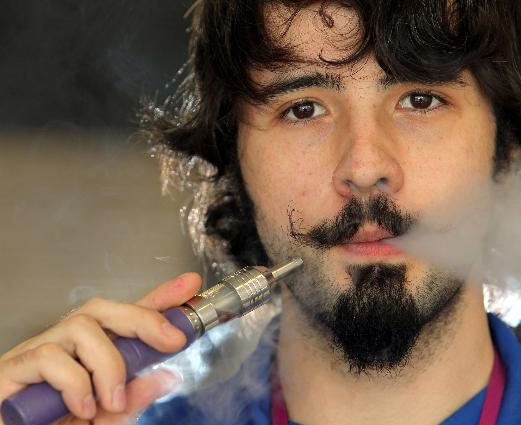E-cigarettes: Should They Be Regulated as Cigarettes?
Bechara Choucair, M.D., Commissioner, Chicago Department of Public Health
Should e-cigarettes be regulated as cigarettes?
I think so.
E-cigarettes are designed to look like cigarettes. They are labeled and marketed like cigarettes. They contain nicotine like cigarettes. They should be regulated like cigarettes.
The single most important reason a regulation on e-cigarettes is vital at this time is to protect kids from a product that we know is addictive. Electronic cigarettes now come in dozens of flavors like passion fruit, cotton candy, bubble gum, gummy bear, Atomic Fireball, and orange cream soda. These kid-friendly flavors are an enticing “starter” for youth and non-smokers, increasing nicotine addiction and frequently lead to use of combustible cigarettes.
Like other gateway products Big Tobacco has masked to entice its next generation of smokers, e-cigarettes follow suit as its popularity with youth nationwide more than doubledfrom 2011 to 2012. Ten percent of our students have already used these addictive products — and they have only been on the market for a few years. This meteoric rise in popularity among youth is concerning. It is also the main reason Mayor Rahm Emanuel has introduced a new ordinance to regulate e-cigarettes as tobacco products.
Simply put, kids should not have easy access to e-cigarettes any longer. Right now in Chicago, a 14-year-old can walk into a store and purchase an e-cigarette with no question asked. This is unacceptable. Retailers should be required to have a tobacco-retail license in order to sell e-cigarettes, which would place these products behind the counter with the other tobacco products and out of arms reach of our children. The government has a duty to protect children from ever picking up a nicotine habit. The preventive action Mayor Emanuel is taking right now is a long-term investment in the health and well-being of Chicago’s youth.
Some might argue that e-cigarettes should not be regulated because they are safer than regular cigarettes. While it’s true that they may be safer than regular cigarettes, they have not been proven to be safe. The truth is e-cigarette companies have not provided any scientific studies or toxicity analysis to the FDA to show that e-cigarettes pose any reduced health risk over conventional cigarettes, nor have they demonstrated that e-cigarettes are safe. Laboratory tests have found that the so-called “water vapor” from some e-cigarettes can contain nicotine and volatile organic compounds like benzene and toluene; heavy metals like nickel and arsenic; carbon compounds like formaldehyde and acrolein, in addition to tobacco specific nitrosamines.
Moreover, no federal regulations have been imposed on e-cigarettes, which means that there currently are no restrictions on ingredients manufacturers can or cannot use and no restrictions on the kinds of chemicals they can emit into the indoor environment. Until more is known about these products, limiting their use in indoor areas is just good common sense.
I am also concerned that widespread use of e-cigarettes is re-normalizing smoking in our society, which in turn, makes this a very pertinent public health issue. E-cigarettes intentionally were developed to mimic the act of smoking. This distorted reinforcement of smoking as cool and acceptable sends the wrong message to our youth and undermines the existing smoking bans put in place to protect the health of the public.
In Chicago, smoking rates are lower than ever. This progress is a direct result of life-saving policies like the Chicago Clean Indoor Air Act. Health advocates worked tirelessly to ensure we all have the right to breathe clean in-door air. We’re not turning our backs on their hard work to promote clean air.
Our residents expect a healthy environment when they walk into a restaurant, bar or theater. We can’t allow any regression in our progress to change the landscape of public health by reverting back to a culture we’ve worked so hard to change. We need to, and can do, better for the children in our city.
Chicago’s new ordinances are part of an overall comprehensive strategy to reduce the negative consequences tobacco use has on our youth.
With the introduction of these expanded tobacco-control policies, Mayor Emanuel is inspiring cities across the nation to take action to ensure that residents avoid preventable disease and live healthy and productive lives.
http://www.huffingtonpost.com/bechara-choucair-md/e-cigarettes_b_4352410.html


